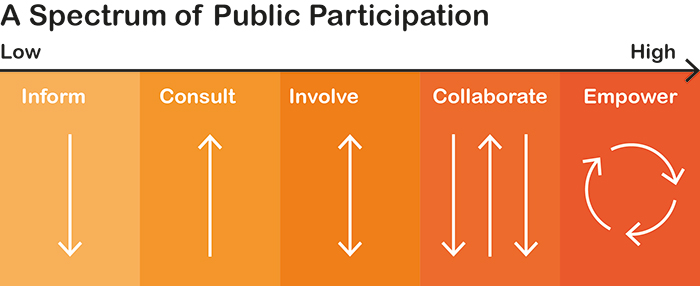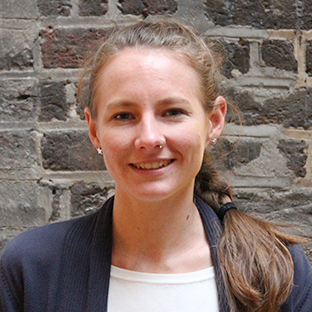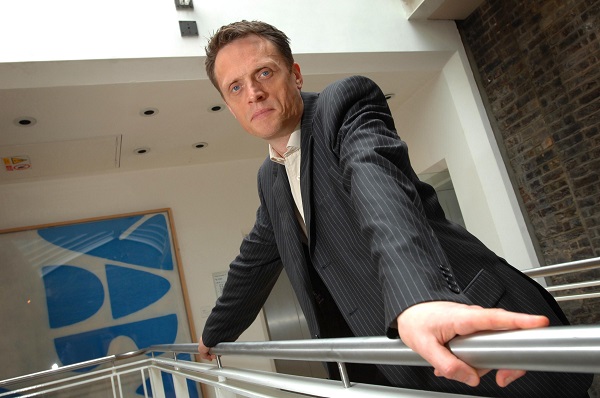Decisions about the economy are typically made by a small number of institutions. If these institutions don’t serve the public as well as they could we need to be able to challenge them to improve.
This is as true of private institutions as it is of public institutions – many of them run their businesses with publicly educated staff, publicly funded infrastructure, drawing upon public consumers to buy the goods from which they make a profit.
The key premise of the Citizens’ Economic Council is that we will have a better democracy, and enable an economy that serves the wider public, by allowing people to participate in economic policymaking processes.
Economics is about human relationships, values and judgements – which can and should involve everyone. We want to kickstart a richer conversation about the economy - one that engages with a wide range of values and perspectives.
We’re crowdsourcing your ideas on how institutions can involve, collaborate with and empower citizens in decisions about the economy.
Take the challenge:
Institutions that make decisions that affect our economy include:
- The Government (both local authorities and politicians) who decide how to spend money on services like schools, hospitals, the police and housing.
- Banks (both high street banks and investment banks) who make decisions about financial products such as how mortgages or loans are structured and supplied. There is also the Bank of England which is the Central Bank that controls interest rates.
- Large Companies and Business who decide the cost of everyday goods and how employees are treated (including pay, working conditions etc.)
What would it mean for these institutions to engage more meaningfully with the public on decisions about the economy? And how could institutions benefit from this engagement?
Participation is a spectrum
There are five key ways that institutions can engage with the public identified through a spectrum of public participation.

At one end citizens are informed about decisions; at the other end citizens take control of the decision-making.
The spectrum of public participation outlines the different levels of participation and engagement of citizens that are possible. This is a spectrum because it is possible for citizens to be engaged in all of these different ways (simultaneously) – the methods that are most appropriate for a given circumstance may vary depending on the decision and the context. Check out the crowdsourcing challenge for a deeper explanation of each of these approaches.
What ideas are we looking for?
We want to hear your ideas on how institutions can better involve, collaborate and/or empower the public in decisions about the economy.
We will be seeking submissions specifically in relation to the UK economy. However, if you are based globally, and can draw upon experiences elsewhere in the world that can help strengthen U.K economic policy, we would welcome hearing from you.
Simple or complex, all ideas are welcome! Once submitted other registered members on the platform will be able to comment on ideas and offer feedback and suggestions.
The RSA and project partners (including a panel of citizen councillors and advisory group members) will then review each submission to establish the feasibility, creativity and positive social impact of your proposals.
The best ideas will be shortlisted and showcased as part of the final report launch of the Citizens' Economic Council.
We really look forward to seeing what ideas you come up with!
Take the challenge:
Find out more about the RSA Citizens' Economic Council
Related articles
-
Tackling populism through practical inclusion
Megan Corton Scott
In the current populist era an active initiative such as the Citizen’s Economic Council is not only necessary, but a breath of fresh air argues Megan Corton Scott.
-
Democracy needs a clumsy solution
Matthew Taylor
To renew democracy, we need to think about how we can combine the strengths and overcome the weaknesses of direct, representative and participative methods.
-
Don't be fooled into thinking economics is not for you
Hetal Jani
Being able to understand what the economy is will help you assess crucial decisions put forward by those in power




Join the discussion
Comments
Please login to post a comment or reply
Don't have an account? Click here to register.
It will take a few generations of active engagement to shift errant dogma-driven economics into a new era of enlightenment - and the task starts with young people.
So, start now with a crowd-funded campaign to ensure that every 1st-year university student (regardless of course discipline) is given as required reading Kate Raworth's book 'Doughnut Economics'. We all play multiple roles in the economy - this 'discipline' should not be confined to Business Studies or Economics students but much more widely understood across all of the arts and sciences.
The scale is huge, the mistaken assumptions are deeply embedded and this would be small a fist step towards an economy that is more Distributive (Inclusive) more Regenerative (less ecologically damaging) and Growth-Agnostic where well-being is not presumed to require never-ending growth.
And then focus on linking students to policy projects within local communities. Engagement cannot happen 'top down' from Whitehall.
We need to tell the stories of how the economy changes the quality of our lives and the possibilities we feel. We need to tell the stories in lots of different ways. I am writing a play about a small business and how finance and banking is not what it seemed. I hope to put this on in 2018. I would like to end the play positively so I will draw from the ideas generated in this study. Please let me know if you would like to help further.
Any change that needs to be made in order to involve and empower citizens would necessarily mean structural change in the institutions themselves; are the people who work in these institutions prepared to accept the changes? The institutions I am referring to are the national central banks, the government departments and its civil servants, the banking system and the businesses themselves. Any changes proposed must be seen to be in the personal self-interest of the people involved in the changes.
For example, for people to be able to claim their Personal Tax Allowance and to qualify for Welfare benefits, it could be made necessary for that person to be a member of their local Residents' Association. If one does not exist in their area, the person must form one; this R. A. would need to be registered with their local parish or district council.
Also, the taxes paid by the residents in a parish or district could be paid to their local council. A percentage of the total amount collected could the be forwarded to Central Government/ The Treasury. This would empower local people to enact their own priorities and take control of their local area. Local government would not be hamstrung by government policies that prevent councils from fulfilling their statutory duties.
To become more strongly involved in the relationships with decision-making in the national economy, I wrote a book which is partly about it. It is titled "Consequential Macroeconomics--Rationalizing About How Our Social System Works". Since our past knowledge about macroeconomics is in such a bad way and the science has rightly been called a pseudo-one, my aim was to replace this with a more formal, logical and exact way of understanding how our social system really works. I would be very happy to share this book and its revolutionary ideas with anybody who is seriously "into" macroeconomics and who is as confused as I was by the way this past dismal science was being expressed. I believe that my work has managed, 250 years after Adam Smith 250 began it, to make our subject much more easy to understand and to become better aware about how we are organized and function in society. The approach I use is a bit mathematical and a lot more logical, so you know what is needed!
My contribution to this subject is offered here for free, write to me at chesterdh@hotmail.com for an e-copy of my research in the form of a book. This is being done due to my idealism for the sharing of scientific knowledge and not to simply show the economics world how cleaver my engineering brain deals with this poorly expressed subject of the past.